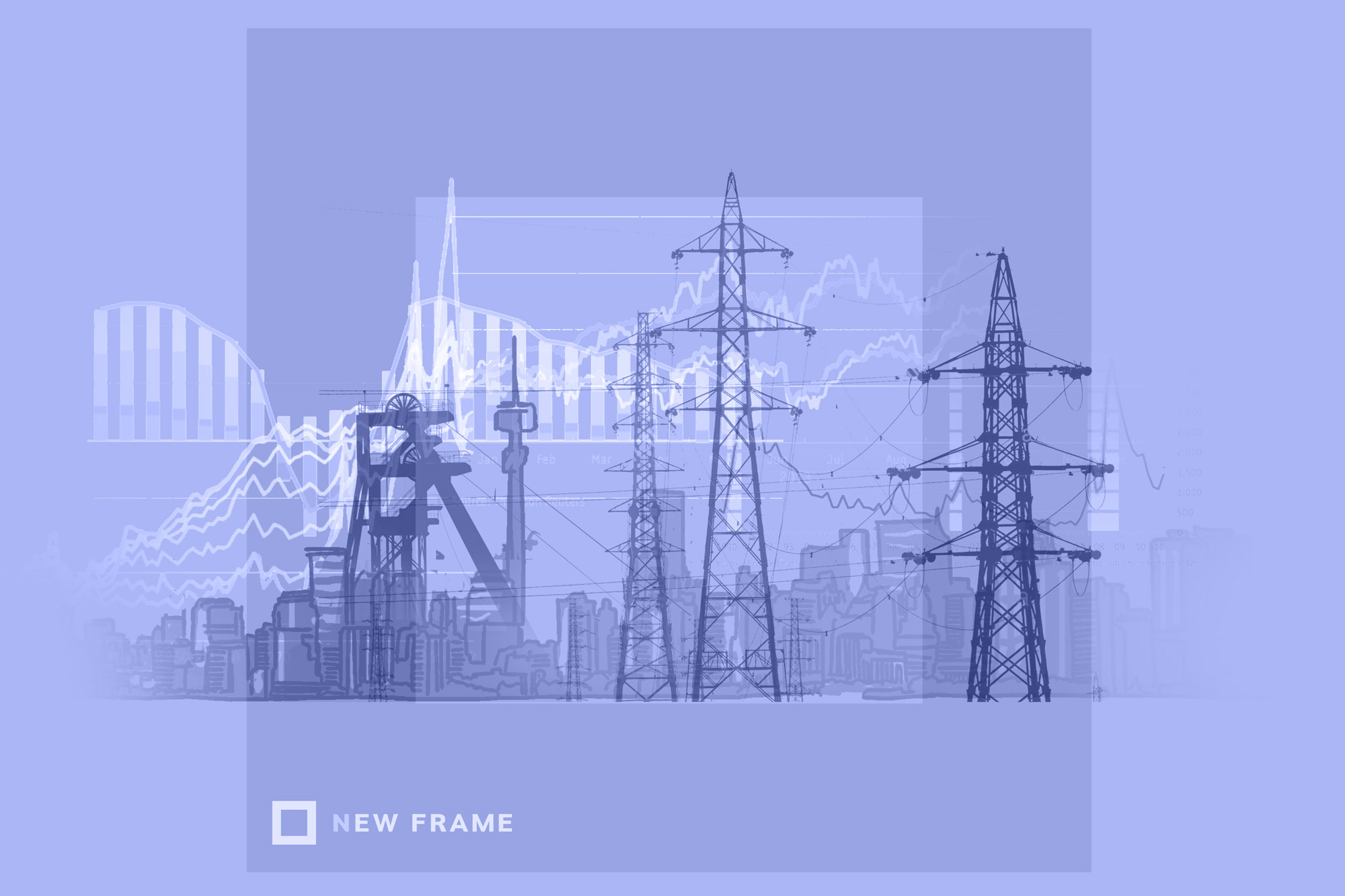Undoing South Africa’s mineral-energy complex
South Africa’s bloody past was made of coal. If we are to have a future, that must change, say the contributors to the New Frame, New Economy forum on minerals and the climate.
Author:
30 August 2021

Make no mistake, the climate crisis is immediate. In fact, it is now more than immediate, it’s desperate.
The past five years have been the hottest on record since 1850. During the most recent polar summer, the arctic seas were exposed to the sun for the first time in hundreds of thousands of years. As a knock-on result, fire has torn through Greece and California, and water has ravaged China and Germany. The list of cities trapped under “heat domes” continues to lengthen. In arid South Africa, we have barely emerged from a generationally severe drought.
Even if we make the necessary cuts to greenhouse gas emissions, the Earth’s already record-high temperatures will continue to rise until the middle of this century. It will no longer be enough to stop the damage we are doing. If we hope to maintain a liveable planet, we will likely have to repair the damage we have already done.
South Africa has played its part in the making of the crisis. There are only 11 other countries who pump more greenhouse gases into the atmosphere every day. And now, we must play our part in unmaking it.
But you wouldn’t know it listening to our minister of mineral resources and energy, Gwede Mantashe. As recently as last week, the government official perhaps most responsible for charting South Africa’s course through a just transition to renewable energy extolled the benefits of coal-driven development over renewable energy.
Related article:
The coal Mantashe so covets is as prehistoric as his approach to the climate crisis. Before Africa as we know it existed, ancient plant matter in what is today Mpumalanga sank to the edges of a great inland ocean. And there it stayed, buried, decomposing and hardening for centuries, waiting for the hand of industry to dig it up.
And when it came, that hand was gloved in Afrikaner nationalism and mining capital. The apartheid state set up a state company – Eskom – to generate cheap electricity from South Africa’s abundant coal to prop up a mining industry built on a cheap Black labour force dispossessed of their land. Eventually, the country’s economy came to be dominated by mining, finance and other manufacturing interests, and fixed into a dependency on coal from which we have not been able to escape.
Our generation will be judged on whether we have the courage to save the planet from the jaws of its past. Authors in this week’s New Frame, New Economy forum take up that challenge in the form of South Africa’s prickly minerals-industrial complex, which, perhaps more than anything else, has shaped our recent economic history, and on whose reformation our economic future depends.
Sam Ashman charts the dubious relationships that got us here, and makes clear the urgency of our exit route. Three respondents then sketch out what such an exit route might look like. Neva Makgetla says we cannot hope to escape our coal dependency until we understand the state that governs it. Brian Kamanzi argues for the central role that the state should play in a just transition and future, while Lumkile Mondi foregrounds the importance of a broad alliance of citizen demands in the making of a new energy complex.





